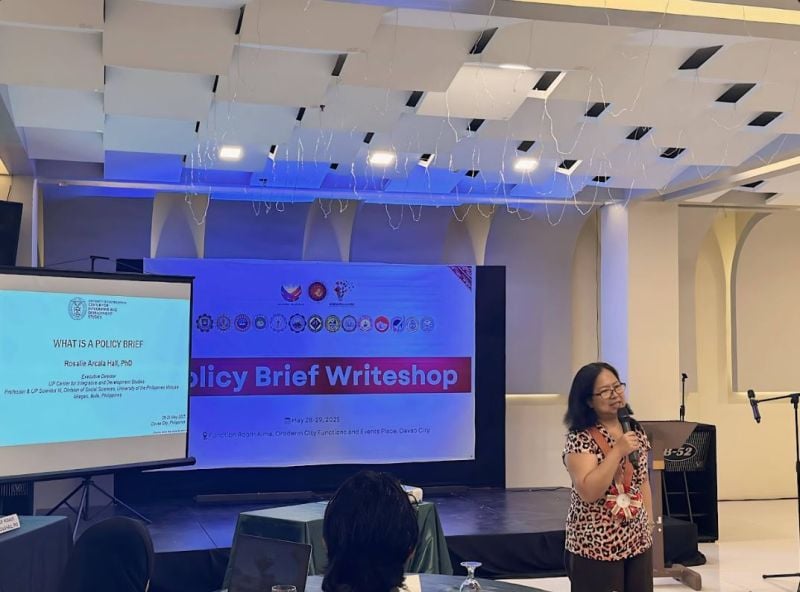UP Leads Policy Brief Writeshop for Mindanao Research Consortium in Davao City

Dr. Rosalie Arcala-Hall facilitates the session “What is a Policy Brief?” during the MinSuPala IRDC Policy Brief Writeshop held on May 29, 2025, at the Oroderm City Function and Event Place in Davao City. (Photo Source: Honeylet Alerta)
The University of the Philippines (UP), through the Center for Integrative and Development Studies (CIDS), conducted a two-day Policy Brief Writeshop on May 28–29, 2025, at the Oroderm City Function and Event Place in Davao City. The event brought together members of the Mindanao Sulu Palawan Innovative Research and Development Consortium (MinSuPala IRDC) to enhance their skills in translating scientific research into policy-relevant outputs.
Dr. Rosalie Arcala-Hall, Executive Director of the UP Center for Integrative and Development Studies, served as the main Resource Person during the event. On the first day, she led two key sessions: “What is a Policy Brief?” and “Identifying Policy-Relevant Research,” where she emphasized the importance of crafting concise, evidence-based policy recommendations.
The second day focused on peer feedback sessions and finalizing policy briefs, allowing participants to refine their outputs with guidance from Dr. Arcala-Hall and their fellow researchers.
The writeshop is part of MinSuPala IRDC’s initiative under a grant from the Department of Budget and Management (DBM), which requires researchers to convert their research findings into actionable policy briefs for broader impact.
This initiative supports Flagship Program #6 of the UP System: Active and Collaborative Partnerships with SUCs, NGAs, LGUs, Private Sector, and Civil Society. The collaboration with MinSuPala IRDC demonstrates UP’s continued commitment to capacity-building, public service, and inclusive research development across the country.
Through initiatives like this, UP deepens its collaboration with State Universities and Colleges (SUCs) and fosters an environment where research is effectively translated into policies that serve both scholars and the wider public.